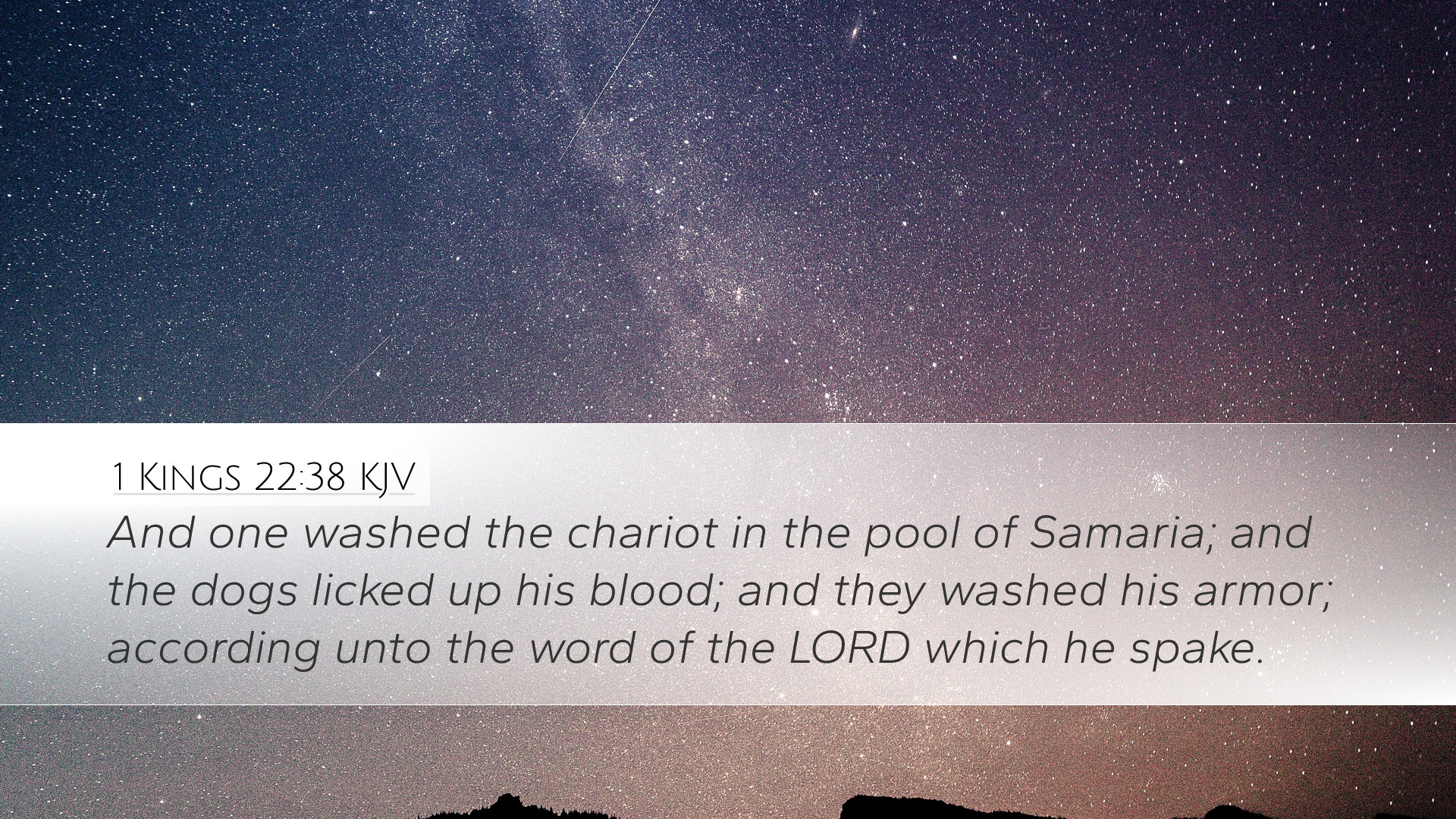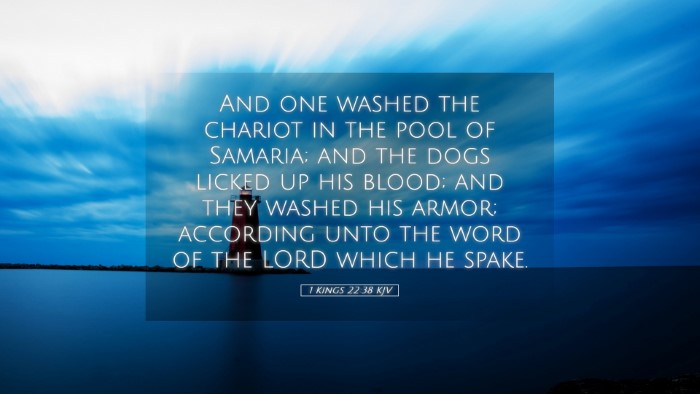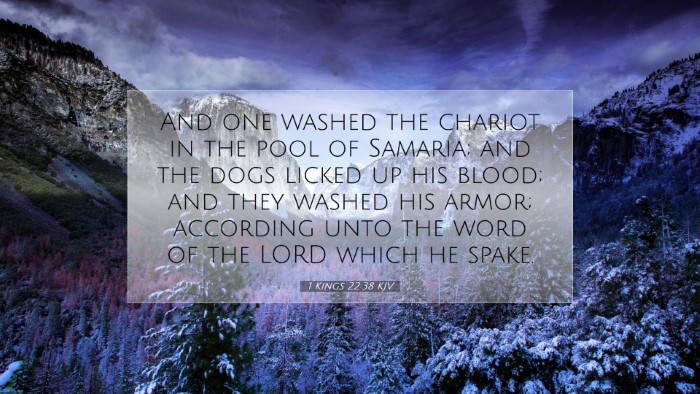"And they washed the chariot by the pool of Samaria; and the dogs licked up his blood; and they washed his armor; according unto the word of the Lord which he spake."
Summary and Insights
This verse concludes the narrative surrounding the death of King Ahab, providing a stark visual of divine judgment manifested in the prophetic word. Throughout the commentaries by renowned theologians, various themes arise that elucidate the importance of this event both historically and theologically.
Divine Judgment and Prophecy
In examining this verse, Matthew Henry emphasizes the fulfillment of prophecy as an essential aspect of God's sovereignty. Ahab's demise was foretold, and the aftermath serves as a solemn reminder of the consequences of disobedience to divine commands.
Henry notes the phrase “they washed the chariot by the pool of Samaria” as significant; it suggests a cleansing after a notorious act, highlighting the disgrace attached to Ahab’s reign and his ultimate end. The imagery of blood mixed with water paints a gruesome picture that speaks to divine retribution.
The Role of Animals in Judgment
Albert Barnes brings attention to the dogs licking Ahab's blood, which is indicative of the Lord's judgment on those who have committed severe sins. In ancient Israel, dogs were considered unclean animals, therefore their involvement in such a macabre scene underlines the extent of Ahab's depravity and God's utter rejection of him.
Barnes elaborates that this act serves as a metaphor for the dishonor of Ahab, showcasing that he could not even receive a proper burial. This reflects the gravitas of Ahab’s actions during his reign and illustrates the theme of divine justice.
Symbolism of the Armor
Adam Clarke provides an interpretation of the washing of Ahab's armor. He suggests that the act symbolizes the futility of the king's defenses against the will of God. No earthly might or armor could save Ahab from his predestined fate, which Clarke uses to underscore the absolute power of God over human affairs.
In his commentary, Clarke points out the importance of recognizing that despite the outward appearance of power, when God has pronounced judgment, nothing can overturn it. Ahab's death thus becomes a chilling example of how earthly kings are subject to the higher authority of the Divine.
Lessons for Leaders and Believers
The narrative encapsulated in 1 Kings 22:38 provides profound lessons for leaders and believers alike. The brutal reality of Ahab's end urges one to consider the importance of aligning with God’s purposes. It serves as a cautionary tale of what occurs when leaders choose the path of immorality and idolatry over faithfulness to Jehovah.
- Accountability: Leaders are accountable to God for their actions and decisions. Ahab’s life showcases the repercussions of ignoring God’s statutes.
- Faithfulness: There is a call for faithfulness in leadership, as Ahab was led astray by false prophets, leading to his demise.
- Divine Justice: This passage reinforces the concept that divine justice may not be immediate, but it is certain.
Theological Implications
This verse also raises important theological questions regarding the nature of God's judgment and mercy. It challenges scholars to explore the intersection of divine sovereignty and human free will in the context of Ahab's choices and their consequences.
Further, it propels believers to ponder on the nature of sin and retribution within the framework of God’s righteousness. As scholars dissect the implications of Ahab's life and death, they are led to a deeper understanding of the character of God — His justice is as paramount as His mercy.
Conclusion
1 Kings 22:38 serves as a poignant reminder of the weight of prophetic words and the seriousness of divine judgments. In synthesis, the insights drawn from Matthew Henry, Albert Barnes, and Adam Clarke illuminate the text, bearing witness to a powerful narrative about the fate of those who defy God’s will.
For pastors, students, theologians, and Bible scholars, this verse calls for earnest reflection on the principles of leadership, accountability, and the unyielding nature of God’s promises, both warnings and assurances.


